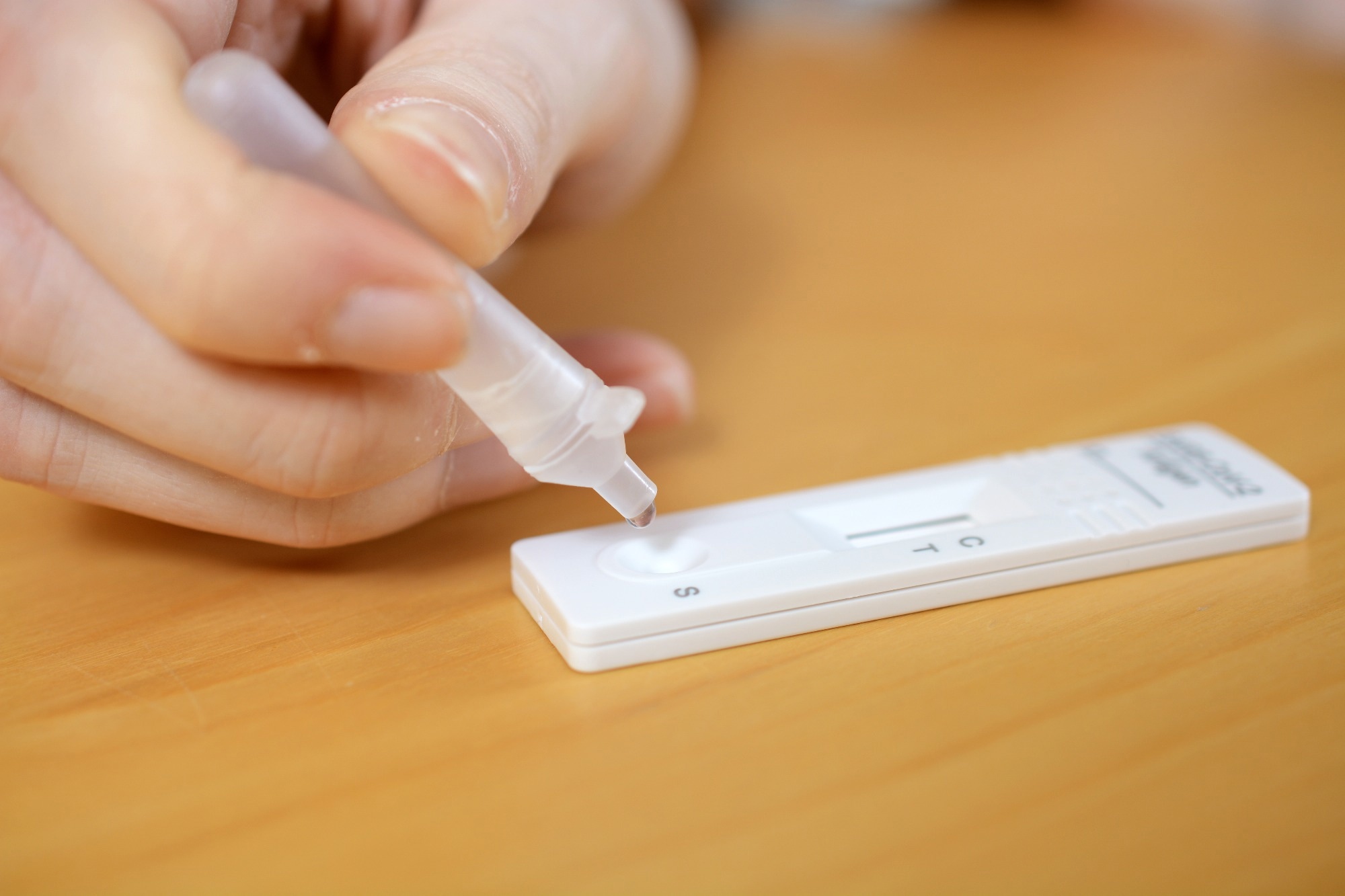In a recent study posted to the medRxiv* server, researchers evaluated a rapid antigen test (RAT) that used saliva specimens to detect the presence of severe acute respiratory syndrome coronavirus 2 (SARS-CoV-2).
 Study: Comparison of COVID-19 Antigen Rapid Test (Oral Fluid) and Real-Time RT-PCR in the laboratory diagnosis of SARS-CoV-2 infection. Image Credit: Dan Race/Shutterstock
Study: Comparison of COVID-19 Antigen Rapid Test (Oral Fluid) and Real-Time RT-PCR in the laboratory diagnosis of SARS-CoV-2 infection. Image Credit: Dan Race/Shutterstock

 *Important notice: medRxiv publishes preliminary scientific reports that are not peer-reviewed and, therefore, should not be regarded as conclusive, guide clinical practice/health-related behavior, or treated as established information.
*Important notice: medRxiv publishes preliminary scientific reports that are not peer-reviewed and, therefore, should not be regarded as conclusive, guide clinical practice/health-related behavior, or treated as established information.
Background
The World Health Organization (WHO) recommends a real-time reverse transcription-polymerase chain reaction (RT-PCR) test that uses nasal/ nasopharyngeal samples as the golden standard for SARS-CoV-2 detection. Qualified personnel perform these tests and require a sophisticated laboratory setup, and their sample preparation and running time is around two hours.
However, due to the limited availability of these tests in several places, self-usable RATs are needed. RATs also potentially reduce the burden on diagnostic laboratories, which increased manifold during the coronavirus disease 2019 (COVID-19) pandemic. Currently, two types of SARS-CoV-2 RATs are available; those that use nasal swabs and the other that uses oral fluid. The latter is gaining interest because it is easier to collect saliva.
About the study
In the present study, researchers evaluated a RAT developed by Hangzhou Alltest Biotech that detects SARS-CoV-2 nucleocapsid (NC) protein in human oral fluid specimens. They tested this device on 500 saliva samples self-collected by patients by spitting them into sterile tubes. The researchers ensured that these patients had not consumed food, drink, gum, or tobacco products at least 10 minutes before the sample collection. They performed the test per the instruction manual and obtained results in around 15 minutes.
For every nucleic acid isolation step, the researchers used negative and positive controls, demi water, and independent run control (IRC). Per the manufacturer’s instruction manual, saliva samples with a cycle threshold (CT) value for one or both SARS-CoV-2 NC and open reading frame 1ab (ORF1ab) genes were considered positive.
Study findings
The study test met the WHO sensitivity criteria in samples with CT values over 30 or high viral loads. It exhibited a sensitivity and specificity of 90.1% and 99.3%, respectively, and an accuracy of 97%. For SARS-CoV-2-positive saliva samples with a CT value lower than 30, its sensitivity and accuracy dropped to 83.8% and 95.9%, respectively. A higher CT value indicates a lower viral load in the sample, which may be difficult for the RAT to detect. Nevertheless, a negative RAT result does not rule out a SARS-CoV-2 infection and requires further verification by RT-PCR.
Furthermore, the RAT required little to no equipment besides the materials provided in its kit. It could be carried easily to a location and performed in less than an hour. Its sample preparation needed less than five minutes, and it fetched results usually within fifteen minutes.
Conclusions
The researchers evaluated a RAT using saliva samples in the current study, which met the high standards set by the WHO and was non-invasive, affordable, and easy to use. It showed an overall sensitivity and specificity of 66.7% and 100% in samples with a CT value lower than 37. It also easily distinguished SARS-CoV-2-infected individuals with high and low viral loads. In support of this study's findings, another study by Basso et al. showed that saliva is an excellent alternative to a nasopharyngeal swab in early SARS-CoV-2 infections.

 *Important notice: medRxiv publishes preliminary scientific reports that are not peer-reviewed and, therefore, should not be regarded as conclusive, guide clinical practice/health-related behavior, or treated as established information.
*Important notice: medRxiv publishes preliminary scientific reports that are not peer-reviewed and, therefore, should not be regarded as conclusive, guide clinical practice/health-related behavior, or treated as established information.